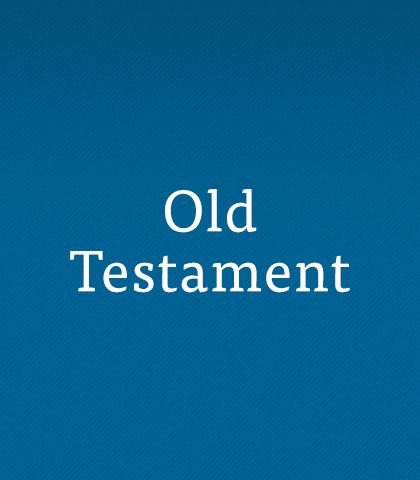Law
While the law was a covenantal gift to God’s people, it is not our covenant law as Christians. We live under the new covenant, so interpreting the old covenant law can be challenging at times.

Struggling through reading the lesser-known Old Testament passages and long prophetic oracles may seem to have little relevance to everyday 21st-century life. But there are important things we can learn from the Old Testament. First, the New Testament is based on the Old Testament. Second, the Old Testament reveals the character of God. Third, the Old Testament has transformational power. Its message transcends time, geography, and culture. It speaks to everyone, everywhere, in every situation.
While the law was a covenantal gift to God’s people, it is not our covenant law as Christians. We live under the new covenant, so interpreting the old covenant law can be challenging at times.
Rather than wallowing in self-pity or bitterness, David praised God with a grateful heart. Praise leaves humanity out of the picture and focuses fully on the exaltation of the living God. The magnifying glass of praise always looks up.
As painful as it is to let go of God’s good gifts, the process of releasing opens our hands to receive the greatest reward—the Giver Himself! As we internalize this biblical account, let’s anchor in our hearts the faithfulness of God who is our Provider.
Biblical poetry may at first seem repetitive, but it forces us to engage both heart and head. Read it slowly. Imagine the experience from different angles. Feel what the poet felt.
A proverb is a short, straight-to-the-point statement about moral truth or general observation on life designed to direct readers toward right and away from wrong.
The Bible’s wisdom literature was different from that of Israel’s neighbours because it was rooted in the theology that God has created an orderly universe with both a natural and moral law. God has wired his creation according to those laws.
Both Judaism and Christianity have the same Old Testament. The essential difference is that Christians accept Jesus as the Messiah and their personal Saviour while Jews do not.
When we consult the Scriptures further we see that God does not explicitly command against war or against the taking of another’s life. Murder, which is different than killing, is explicitly condemned.
We may take God as He really is or reject Him on the same basis, but the one opinion not open to us is to create Him as we’d like Him to be. He is and has always been the God of love and justice in both the Old and New Testaments.
A promise is an assurance that one will or will not undertake a certain action. The promise motif arises early on and runs throughout Scripture, becoming intertwined with other terms, expanding and giving it depth.